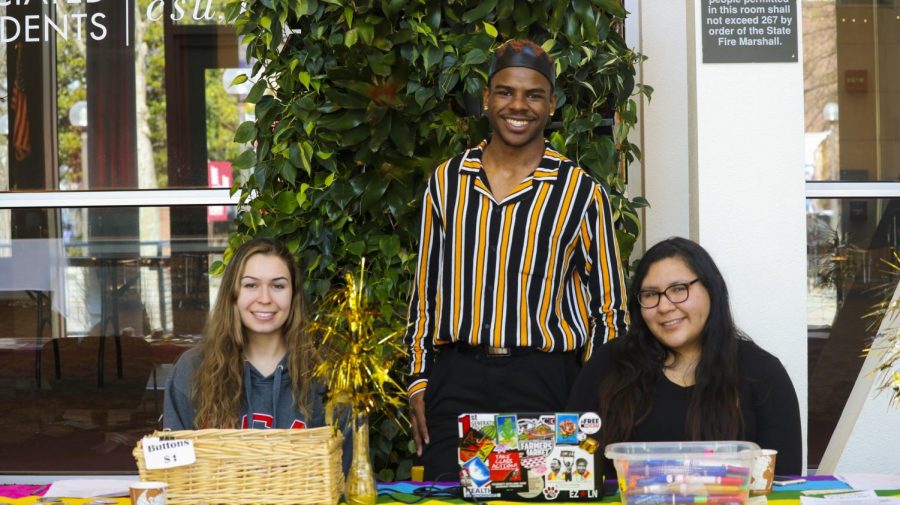The second day of the trans and queer conference was hosted by the Gender and Sexuality Equity Coalition on Saturday in the Bell Memorial Union. This conference was the first of many events to kick off the GSEC’s Gender and Sexuality Week.
Queer program coordinator Drew Belisle began the conference by touching base on the goals of the day: to learn about all communities and bring light to issues within them. This includes not only LGBTQ+ communities but also identities, experiences, oppression and marginalization; topics that are often left out of the conversation.
Each year’s conference has a different theme, chosen by GSEC. This year’s theme is “Queer Existence is Resistance.”
“This conference is saying that we’re still here no matter what, no matter how much oppression we’ve faced,” Belisle said. “We’re still able to show that we have a voice because a lot of the times, communities are being silenced. It’s saying our existence matters.”
Before the attendees split off into the many workshops of the day, the GSEC presented the keynote speaker of the conference. Yosimar Reyes, a nationally acclaimed poet, public speaker and advocate, spoke about his experience with growing up undocumented and queer.
Spending his childhood as a migrant in the United States, Reyes described how being undocumented shaped his life experiences and his poetry. He self-published a book of poetry, “For Colored Boys That Speak Softly,” which has also been published in multiple online journals and books related to queer Latinx poetry.
The rest of the day consisted of six workshops that attendees could participate in based on their personal interests. Each session featured community leaders and advocacy groups from around the Chico area.
One workshop walked its participants through the paperwork and process required to get a legal name and gender change in California. This session was geared towards people who want to change their name and gender, but also people who want to help friends or family go through the legal process.
The process is tedious and may require months of filling out paperwork and requesting documents from the government. Every piece of paper that is submitted to the courts must be filled out completely correctly and in a specific order, even the order in which certain paperwork is stapled.
Stonewall Alliance Center’s advocacy and education coordinator, Marin Hambley, led the discussion on their experience with helping clients through this process and why it is crucial to the transgender community.
“There’s no one way to be trans, no transitional requirement. You don’t have to change your name and gender and you don’t have to seek hormones,” Hambley said. “But for folks who do want that, there are, what I call, life-saving procedures and practices where we see actual suicide attempt rates drop dramatically when somebody is able to receive those gender-affirming practices.”
Other workshops included a queer and trans person of color safe space discussion, daily consent practice, navigating being queer and undocumented and LGBTQ+ tobacco use.
“The workshop I was most excited for was the QTPOC (queer/trans people of color) safe space,” Belisle said. “It was a great opportunity to start that discussion about what it means to be queer and trans, but also what it means to be a person of color, and analyzing the intersections of those identities.”
Upcoming events of GSEC’s Gender and Sexuality Week can be found on their Facebook page. The week will conclude with an inclusive “Queer Prom” at the Bell Memorial Union on Saturday.
Rayanne Painter can be reached at artseditor@theorion.com or @rayphenomenon on Twitter.






